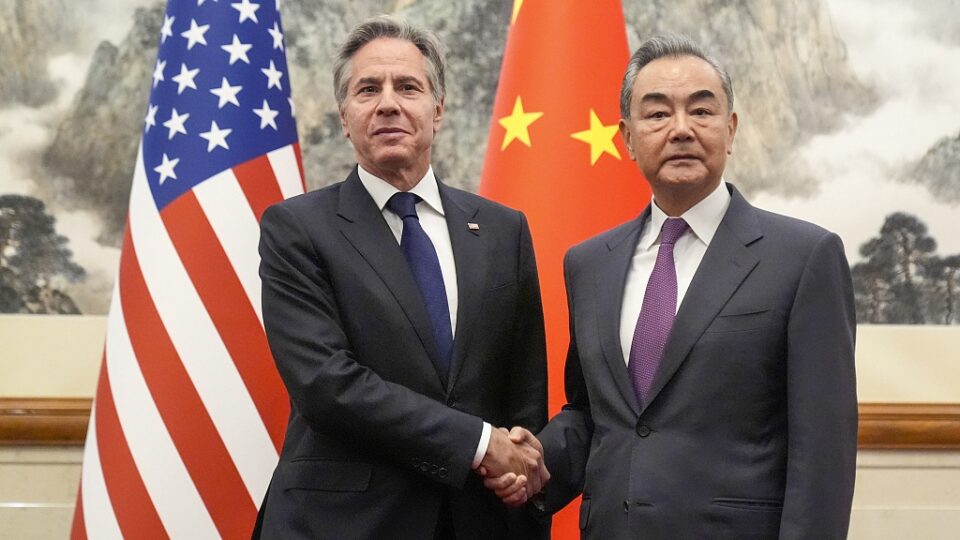Chinese Foreign Minister Wang Yi (R) shakes hands with U.S. Secretary of State Antony Blinken in Beijing, China, April 26, 2024. /CFP
Chinese Foreign Minister Wang Yi urged the U.S. not to suppress China’s development during talks with U.S. Secretary of State Antony Blinken on Friday in Beijing.
Blinken is visiting China from April 24 to 26.
Wang, also a member of the Political Bureau of the Communist Party of China Central Committee, said that China views and develops China-U.S. relations from the world vision of building a community with a shared future for mankind.
He said China’s position and request on China-U.S. ties have always been consistent. China adheres to the principles of mutual respect, peaceful coexistence, and win-win cooperation and commits to promoting the stable, healthy, and sustainable development of China-U.S. relations, he added.
China proposes that each other’s core interests should be respected and urges the U.S. not to interfere in China’s internal affairs or cross red lines when it comes to China’s sovereignty, security, and development interests, he said.
Wang said that under the leadership of the two heads of state, China-U.S. relations have been stabilized from further deterioration, and bilateral dialogue, cooperation and positive aspects in various fields have increased, which is welcomed by the two peoples and the international community.
On the other hand, China-U.S. relations are still facing increasing negative factors and various disruptions, Wang said, adding that China’s legitimate development rights are being unreasonably suppressed and China’s core interests have been constantly challenged.
He stressed that whether China and the U.S. should stick to the right path of stability or repeat the mistake of a downward spiral is a major issue facing the two countries, which tests the sincerity and capability of both sides.
The world is waiting to see whether the two countries will lead international cooperation to address global issues and achieve win-win outcomes, or confront each other, even breaking out into conflicts and leading to a lose-lose situation, Wang added.
(With input from Xinhua)


